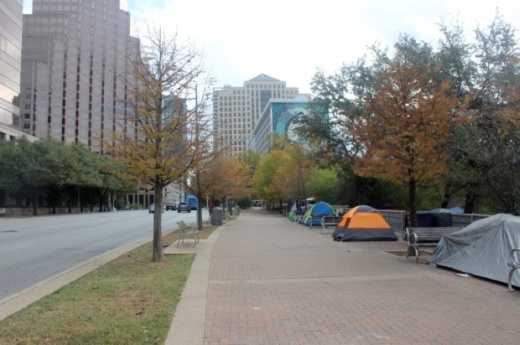This year, there will be no volunteers counting unsheltered homeless individuals. The nonprofit that coordinates the count, the Ending Community Homeless Coalition, or ECHO, announced Jan. 7 it had called off the effort this year due to concerns about the spread of COVID-19.
ECHO said in a news release it had received an exception from the U.S. Department of Housing and Urban Development, and it does not expect the decision to affect its level of federal funding. Instead of the hand count, ECHO will use other data sources, including its Homeless Management Information System, to estimate the number of unsheltered homeless individuals. Sheltered homeless individuals will still be counted.
In the news release, ECHO said that last year, it relied on 886 individuals, many of whom are older adults, for the count. This year, ECHO said, it would be "irresponsible at best and negligent at worst" to have those individuals conduct an in-person count.
"Either we jeopardize the health of the very people we are trying to serve and hundreds of staff and volunteers or try to hold a scaled-back operation that would likely lead to an undercount; neither of those outcomes serves the best interest of our community," said Sarah Duzinski, ECHO's vice president of quality assurance, in the release.
Since 2015, homelessness in Austin has trended upward overall—the unsheltered population has risen steadily while the sheltered population has fallen. While ECHO has no data to confirm that homelessness is up due to the COVID-19, Executive Director Matt Mollica told Community Impact Newspaper in November that believes the economic effects of the pandemic has led to an increase.
“I think, anecdotally, probably, as many folks have imagined, in their communities, homelessness is increasing because of the pandemic and because of job loss and the lack of [federal] rent relief,” Mollica said.





